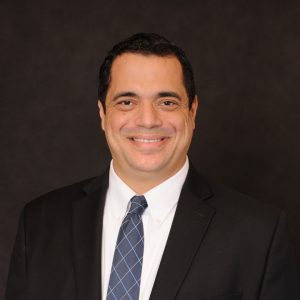



Get new exclusive access to healthcare business reports & breaking news






Interviewee: Danilo Coité, MD, CEO
A trained physician with 15 years of experience in various areas of the healthcare industry, Danilo Coité talks with Healthcare Weekly about his most recent role as CEO of Independence Plus, the unique challenges facing home healthcare, and his bright outlook for the future of the organization.
Tell us about Independence Plus.
Dr. Danilo Coité: We’re a home healthcare company based out of Oak Brook, Illinois, and we have been in business for 31 years. We provide services for complex patient care in the home, such as caring for patients that otherwise would be institutionalized in ICU or long term care facilities. The work we do allows those chronic, complex, but stable patients to receive around the clock care from their home.
Can you tell us about yourself and how you started working with Independence Plus?
DC: I’m a physician and have been in the healthcare space for more than 15 years, working in clinical medicine, risk management and managed care insurance plans on the provider side. In addition, I’ve worked on the business side of healthcare for a number of organizations including Home Physician (acquired by Cigna HealthSpring as Alegis Care) and White Glove Health, based in Austin Texas. I’ve been with Independence Plus for the past year and a half.
You started as a physician and then moved on to more of a corporate role. What is your opinion on that? How much say do physicians actually have in shaping healthcare practices and technologies?
DC: In recent years, we have seen a shift where healthcare practices and technology decisions are being made by clinicians who are concerned with the well-being of their patients. With more physicians in corporate roles, you are starting to see not only a concern for patient care, but also a focus on resource acquisition and allocation, as well as company structure, to achieve instrumental goals of cost effective patient care.
Physicians are key decision makers in a new integrated delivery system of medicine, bridging the gap through an understanding of clinical operations without the traditional triad of doctors, payers and administrators thinking in silos. Our healthcare system will only benefit from the blend of expertise and knowledge that physicians will bring to this model of patient care.
As a trained physician turned healthcare CEO, can you share your thoughts on the trends you’re seeing from care providers?
DC: Looking at physicians specifically, they go to med school and they get a really good education on treatment and patient care. But I think the part that’s missing is education on the business of medicine.
So a lot of physicians, while they’re practicing, feel compelled to do more because of the red tape and regulations we go through to practice medicine. So now what you’re seeing — and I’m glad it’s happening — is that physicians will go back to school for a master’s in public health education or an MBA, which both provide a better look at the business of medicine.
With that, you’re now seeing physicians in roles in health plans and roles in hospitals and hospital systems. It’s a welcome sight to see not only physicians, but also nurses and healthcare professionals, take more of the business approach, because they have all been down in the trenches and they understand the delivery part of medicine.
Can you share how Independence Plus can provide the same quality of care as traditional hospitals and clinics for lower cost?
DC: Because of the overhead costs of an institution, and the liabilities of an institution. Not that we have less liabilities, but we generally have less of “the old business” type of costs.
Plus, when you bring healthcare into the home, you shorten the communication gaps between the family, patient, decision-maker and the provider. Whether it’s a physician that comes to the home, nursing care, technicians or speciality therapists, they all are in the [home] environment and communication is quicker.
We also keep the quality of care high while decreasing hospitalization from nosocomial infections acquired in a facility setting.
In addition to the care team and patient support systems, are there any types of technology that you leverage to ensure quality of care?
DC: What we are doing right now at Independence Plus is a lot about use of systems. When I use the word system, I mean technology in the home and how to close that gap.
For example, the majority of companies in our industry are pretty much still in an archaic age where they’re using AMR systems. This presents real problems because when you’re dealing with in-home care there’s always the shortcomings of technology, whether it’s wi-fi connection or something along those lines.
We developed an app for clinician training that allows clinicians to get information at the point of care. We have provided systems and terms for population management and decision making. This systemic approach is achieved with technology and data collection of health behaviors, social and economical factors, and the physical environment. Our healthcare delivery system deals directly with social economic and social determinants our patients need to deal with to improve their quality of life.
I’m also a big believer in using new technologies. We want to go to the next phase with artificial intelligence, and determine how some of this newer technology can help us. We’re always looking to be on the cutting edge of technology.
Could you share some of the challenges your organization faces, specifically as it relates to the relationship between your staff and working with patients in their homes?
DC: One thing I’ve found is communication is key. Remember, we live in a world that is now more globalized than ever and healthcare providers need to understand the wants and needs of the patient. We came from an era where clinicians would dictate the course of care; now, you’re seeing patients dictating the course.
To be able to do that — to understand your patient’s needs, to have that emotional intelligence of a healthcare worker who understands the verbal and nonverbal feedback from a patient — is crucial.
Another challenge we face is a lack of resources. With national nursing shortages, its becoming more difficult to prepare and train enough nurses to take care of patients.
What do you see when you think about the future of Independence Plus?
DC: You know, the reason why I got into the business side of medicine is to make a real difference. To be able to reach out to more people, not to be in that one-off transaction, but to have a more holistic approach to helping others.
On a micro level, we’re trying to make a difference in the Chicagoland area. We are on a very fast growth pattern right now. We’ve had 20% growth year-over-year, and if two or three years from now we can be in 10, 15, 20 states, we’ll really be able to make a profound difference.
What keeps you up at night as a CEO of a healthcare organization?
DC: The care of our patients. When you’re caring for this type of patient the way we do, we need to make sure that the best care is given at home, and make sure that we are fulfilling the needs of our patients. That we’re doing the right thing, and that our nurses are trained at the highest standards.
What healthcare trends do you think other healthcare CEOs should be aware of?
DC: Healthcare is changing. It’s changing fast, especially with technology. And we have to change the way we deliver healthcare. In my career as a CEO, I’ve noticed that my peers tend to stay with old trends because change is hard, but I think it’s important for CEOs to be up to speed, do tons of reading, and always be on the cutting edge of medicine.
What do you think are some of the most critical technologies that will revolutionize healthcare over the next 10 years?
DC: Technologies that influence decision making. I think more and more, we’re now looking at medicine as being a decision-making tree with algorithms.
In the past, you would read about something and then act; now, there’s a lot of data behind what works and what doesn’t work. It then becomes about using those resources to find the best course of action and treatment to give to your patients.
Is your organization implementing any of these algorithmic ways of making decisions?
DC: Yes. We look at hospitalization rates, we look at visits, we look at infection rates. We see patients coming in and the way they’re treated, we look at their care management. We’re just in the early stages, at the beginning of what’s out there, and there are a lot of great things to come.
As a leader, what’s one thing you’d like your employees to know that they may not be aware of?
DC: I’m not sure they are truly aware of how much of what they do makes a difference in someone’s life.
Can you share a must-read recommendation for healthcare executives?
DC: I’m big on Harvard Business Review. I’m always paying attention to their publications.
This interview has been edited and condensed.